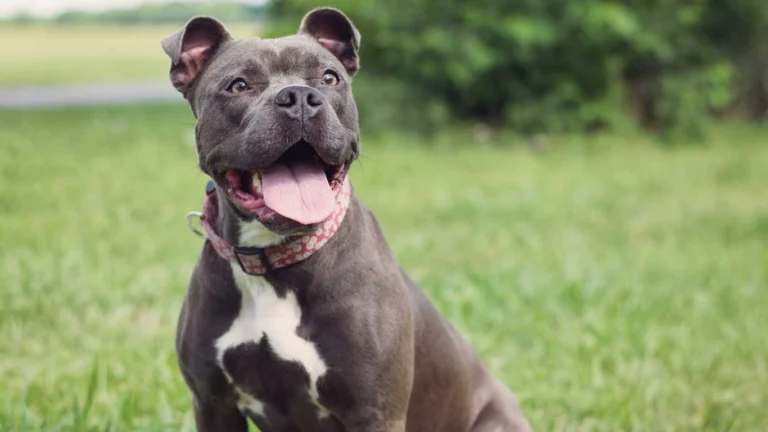How to Help a Dog with Low Energy Levels: Proven Tips to Boost Vitality
Seeing your pup suddenly become sluggish can be worrying. As a pet nutritionist working in veterinary clinics, I’ve encountered countless pet parents asking, “How to help a dog with low energy levels?” If your furry companion isn’t as playful or lively as they used to be, there could be several reasons behind it—some harmless, others requiring urgent attention. Let’s dive into the common causes and, most importantly, practical solutions to get your pup bouncing with energy again.
Common Reasons Why Your Dog May Have Low Energy

Before jumping to conclusions, it’s important to understand what might be zapping your dog’s energy. From my experience in veterinary clinics, these are the most frequent culprits:
1. Poor Diet and Nutritional Deficiencies
Just like us, dogs rely on proper nutrition to stay active. If they’re not getting the right balance of proteins, fats, and essential vitamins, their energy levels can take a serious hit.
- Low-quality kibble: Many commercial dog foods contain fillers and artificial ingredients that don’t provide real nourishment.
- Lack of protein: Dogs need a sufficient amount of high-quality protein to maintain muscle mass and energy.
- Vitamin deficiencies: Low levels of B vitamins, iron, or omega-3 fatty acids can cause fatigue.
Personal Insight: I once had a client whose Labrador retriever, Max, went from an energetic pup to a sluggish couch potato. After reviewing his diet, we discovered his food lacked essential amino acids. Switching to a high-protein, grain-free diet brought his energy back within weeks.
2. Lack of Exercise and Mental Stimulation
Many pet owners assume their dogs are naturally energetic, but without regular exercise and mental engagement, even the most playful breeds can become lethargic.
- Dogs need daily walks and playtime to stay active.
- Without mental stimulation (puzzle toys, training, or interactive play), they can become bored and lazy.
- A sedentary lifestyle can lead to weight gain, making movement even more difficult.
Vet Tip: If you notice your dog is uninterested in walks, try changing routes or introducing new toys to keep them engaged.
3. Underlying Health Conditions
Sometimes, a drop in energy isn’t just laziness—it could be a sign of an underlying health issue. In my experience, the following conditions are often linked to fatigue:
- Hypothyroidism: A common issue in middle-aged dogs, leading to weight gain and sluggishness.
- Anemia: Low red blood cell count can make your pup feel constantly tired.
- Diabetes: If your dog is drinking more water than usual and seems lethargic, diabetes could be the cause.
- Heart disease: Poor circulation can lead to reduced stamina.
When to See a Vet: If your dog’s energy levels drop suddenly or they display symptoms like vomiting, excessive panting, or unusual weight changes, consult a veterinarian immediately.
How to Help a Dog with Low Energy Levels

Now that we’ve identified possible causes, let’s focus on solutions to bring back your pup’s enthusiasm for life.
1. Upgrade Their Diet with High-Quality Nutrition
Food plays a huge role in energy levels. If your dog’s diet is lacking, it’s time for a change.
- Opt for protein-rich, whole-food-based meals (like fresh-cooked or raw diets).
- Ensure their diet includes omega-3s for brain and joint health.
- Add natural energy boosters like bone broth, fish oil, and probiotics.
Pro Tip: If your dog is still low on energy despite a good diet, ask your vet about adding supplements like B-complex vitamins or L-carnitine.
2. Increase Physical Activity (But Do It Gradually)
If your pup has been lying around too much, gently reintroducing exercise can make a world of difference.
- Start with short but frequent walks to rebuild stamina.
- Engage them in interactive games like fetch or agility training.
- Consider swimming for low-impact exercise, especially for older dogs.
In my clinic, I once worked with a senior Golden Retriever, Daisy, who struggled with low energy. A simple shift from one long walk to three shorter, engaging play sessions per day made a dramatic improvement.
3. Address Any Potential Medical Issues
If changes in diet and exercise don’t improve energy levels, it’s essential to rule out any underlying medical concerns.
- Schedule a vet check-up for blood work and thyroid testing.
- Monitor for symptoms like limping, excessive thirst, or sudden weight changes.
- Discuss medications or lifestyle adjustments if a health condition is diagnosed.
Remember: Early detection of medical issues can prevent further complications and help your dog regain their zest for life.
Boosting Your Dog’s Energy with Lifestyle Adjustments

Beyond food and exercise, your dog’s overall lifestyle plays a crucial role in their energy levels. Just like humans, dogs thrive when their daily routine supports their physical and mental well-being. If your pup still seems sluggish, it might be time to fine-tune their environment and daily habits.
1. Ensure Quality Sleep and Rest
You wouldn’t expect to feel energized on poor sleep, and the same goes for dogs. A restless pup at night can result in low energy during the day.
- Make sure your dog has a comfortable sleeping area—a quiet, cozy spot away from noise and distractions.
- Monitor for signs of sleep disturbances, like frequent waking, pacing, or excessive napping during the day.
- For senior dogs or pups with joint pain, an orthopedic bed can improve their rest and mobility.
Personal Insight: I once worked with a senior Bulldog named Bruno who seemed lethargic all the time. Turns out, his old bed wasn’t supportive enough, making it uncomfortable for him to rest. Once his owners switched to a memory foam dog bed, his energy levels improved dramatically.
2. Mental Stimulation is Just as Important as Physical Exercise
A bored dog is often a lazy dog. Keeping your pup’s mind engaged is just as important as physical activity.
- Introduce interactive toys like puzzle feeders to encourage problem-solving.
- Rotate toys frequently to keep their interest piqued.
- Incorporate short training sessions—learning new tricks or commands stimulates their brain.
Vet Tip: If your dog isn’t motivated by toys, try using food puzzles or treat-dispensing games to encourage play.
3. Address Stress and Anxiety
Believe it or not, stress and anxiety can drain a dog’s energy just as much as physical exhaustion. If your pup is anxious, they may seem withdrawn, restless, or overly tired.
- Identify stress triggers—loud noises, separation anxiety, or changes in routine.
- Try using calming techniques like pheromone diffusers, soft music, or anxiety wraps.
- For severe anxiety, consult a vet about natural supplements or behavioral training.
Case Study: I had a client with a rescue dog, Bella, who was constantly tired. After some investigation, we realized she was anxious due to a recent move. Implementing a structured routine and adding a calming dog bed helped her adjust, and soon her energy returned.
Health Supplements That Can Help Boost Energy

While a balanced diet should provide most of the nutrients your dog needs, some pups benefit from additional support. The right supplements can make a noticeable difference in energy and overall vitality.
1. Omega-3 Fatty Acids for Joint and Brain Health
Omega-3s (from fish oil or flaxseed) help reduce inflammation, support brain function, and keep joints healthy—especially important for senior or arthritic dogs.
- Look for high-quality fish oil with EPA and DHA.
- Flaxseed oil is a plant-based alternative for dogs allergic to fish.
Personal Insight: My own dog, a Border Collie mix, had noticeably lower energy at 8 years old. Adding a high-quality fish oil supplement made a huge difference in his movement and alertness.
2. B Vitamins for Natural Energy
Dogs need B vitamins for metabolism and energy production. If they’re lacking, they may seem tired or sluggish.
- Foods like organ meats, eggs, and green vegetables are natural sources of B vitamins.
- If recommended by your vet, B-complex supplements can provide a safe boost.
3. Probiotics for Gut Health and Digestion
Did you know that poor digestion can lead to low energy? A dog’s gut health is directly linked to their immune system and vitality.
- Probiotics help maintain a healthy gut microbiome.
- Yogurt, kefir, or vet-approved probiotic supplements can aid digestion.
Hydration: The Often Overlooked Key to Energy

One of the simplest but most overlooked reasons for low energy? Dehydration. If your dog isn’t drinking enough water, it can lead to fatigue, poor digestion, and overheating.
How to Encourage More Water Intake
- Always provide fresh, clean water in multiple locations.
- Try adding bone broth to their water for extra flavor.
- Use a pet water fountain—some dogs prefer moving water over still bowls.
Pro Tip: If your dog eats mostly kibble, consider switching to a fresh or raw diet, as these contain higher moisture levels.
Final Thoughts Before Moving Forward
By addressing diet, exercise, mental stimulation, and overall well-being, you’re setting your pup up for a more energetic and happy life. In the next section, we’ll dive even deeper into advanced strategies for maintaining your dog’s energy long-term.
Maintaining Your Dog’s Energy Long-Term

Now that we’ve explored the immediate fixes for low energy, let’s talk about how to maintain your dog’s energy levels over time. Just like with us, keeping a dog energized is all about consistency, balance, and adjusting their routine as they grow older. As a pet nutritionist, I always emphasize that maintaining energy is more of a marathon than a sprint, so it’s about forming habits that support your dog’s health for the long haul.
1. Regular Veterinary Check-ups
One of the best ways to ensure your dog maintains good energy is to keep up with their regular vet visits. Preventative care is always more effective than reacting when things go wrong.
- Annual blood work to check for any hidden health problems like anemia or hypothyroidism.
- Routine physical exams to catch any issues like joint pain or heart problems that may affect their stamina.
- Age-appropriate screenings, especially for senior dogs, to catch any early signs of common illnesses like arthritis or diabetes.
Personal Experience: I’ve seen so many cases where low energy could have been avoided with a simple blood test. For example, I once treated a Golden Retriever whose energy dipped due to a thyroid imbalance. After starting medication, he was back to his playful self within weeks!
2. Keep Their Routine Consistent
Dogs are creatures of habit. Maintaining a consistent routine will help them manage their energy levels throughout the day. A predictable schedule can also help reduce stress, making your dog feel secure and calm.
- Try to feed them at the same time every day.
- Establish a regular exercise routine. Dogs thrive on consistency, and knowing when they’ll get their walk or playtime helps them stay mentally stimulated.
- Maintain a regular sleep schedule. A dog who wakes up and sleeps at roughly the same times each day tends to be more alert and energetic.
Vet Tip: A lack of routine can lead to anxiety, which in turn can sap your dog’s energy. A consistent environment keeps them feeling stable and content.
3. Monitor Weight and Activity Levels
One of the main factors that can drain your dog’s energy is carrying excess weight. It’s a major concern, especially for dogs that are less active or getting older. Obesity leads to fatigue, joint problems, and even heart issues.
- Monitor your dog’s weight regularly—watch for sudden weight gains or losses.
- If your dog is overweight, start a controlled diet with the help of your vet to gradually shed excess pounds.
- Increase the duration or intensity of their activity slowly to avoid putting too much strain on their joints and muscles.
Case Study: I had a client with a Bulldog named Max who had gained a few pounds over the years. As soon as we adjusted his diet and added a daily walk, his energy levels skyrocketed. Within months, he was running around like a puppy again!
Using Natural Remedies to Boost Your Dog’s Vitality

While vet-approved medications and supplements can be helpful, many pet owners prefer natural remedies to support their dog’s energy levels. There are several natural options available that can complement your dog’s diet and exercise plan.
1. Herbal Supplements for Energy
Herbs have been used for centuries to support health and vitality, and many of these can also benefit your dog’s energy levels. Some of the most common herbal remedies include:
- Ginseng: Known for its energy-boosting properties, ginseng may help improve your dog’s stamina and alertness.
- Turmeric: This powerful anti-inflammatory herb can ease joint pain, which may be causing your dog to slow down.
- Gingko Biloba: Often used for cognitive support, this herb may help older dogs stay more active and mentally sharp.
Pro Tip: Always consult with your vet before introducing any new herbal supplements. While many are safe, the dosage and interactions with other medications need to be carefully considered.
2. Aromatherapy for Relaxation and Energy
Aromatherapy can also be a helpful tool in maintaining your dog’s energy. Certain scents can promote relaxation, reduce stress, and help your pup recharge.
- Lavender: Known for its calming properties, lavender can reduce anxiety and help your dog rest better.
- Peppermint: A stimulating scent that may help boost your dog’s alertness and energy levels.
- Chamomile: Ideal for dogs with nervous energy, chamomile can help calm their minds and restore their focus.
Personal Insight: I’ve used aromatherapy with my own dog during stressful situations, like vet visits, and it really helped him relax and regain his energy afterward.
References and Disclaimer
References:
- For more information on dog nutrition, visit Paw Patron.
- Learn about natural dog supplements at Paw Patron Supplements.
- Read more on dog health and well-being from the Paw Patron Blog.
Disclaimer: The information provided in this article is for educational purposes only. It is not intended to replace the advice of a professional veterinarian. Always consult with your vet before making any changes to your dog’s diet, exercise routine, or health regimen.
By incorporating these strategies into your dog’s life, you can help them maintain vibrant energy levels as they grow older. With the right nutrition, exercise, mental stimulation, and regular veterinary care, your dog can continue to live a happy, active life for many years to come!






